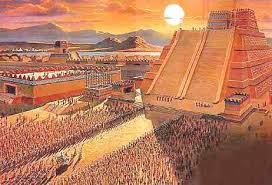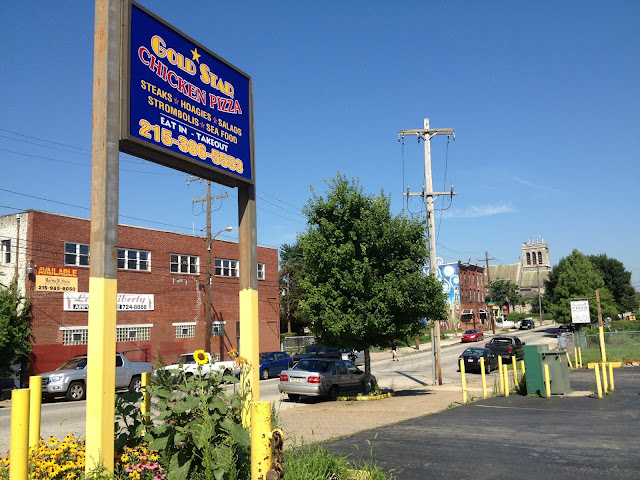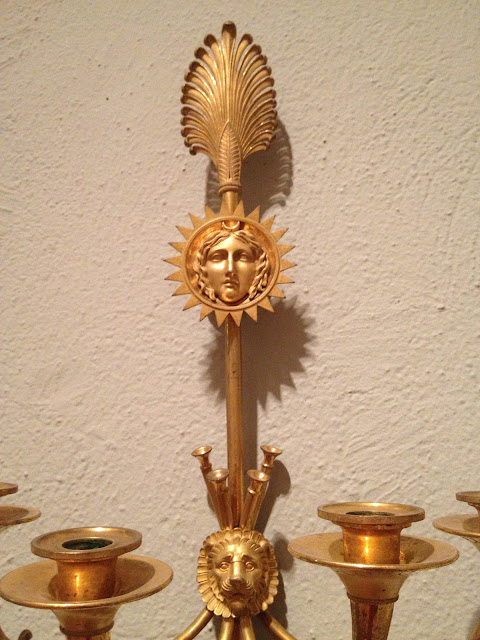It’s
a jungle out there.
The
city is stewing. The streets are
roasting. The roof is on fire.
Baby,
it’s hot outside, during these final days of the Strong Sun Moon.
Citybillies,
take cover wherever you can.
This
is not my weather of choice, this is not my season. After all, I am an Elk of the Thunderbird
Clan, born under the Long Snow Moon of mid-Decembertime, but I refuse to stay
inside.
Can’t
let this brutal heat wave keep me off these scorching streets and away from
those steamy woods, still lots to catch and hunt.
Nice
try, Coyote.
Windows
down and sunglasses on, I’m going out, through the swelter and into the sizzle,
head-first into the fever.
Gotta
love the burn.
This
might make me sound like a glutton for punishment but I’m going straight for
it. I’m going hunting for the highest,
hottest totem of this season.
Set
the controls for the heart of the sun.
Sorry,
rose, but if I was ever elected Big Chief of Turtle Island, this would be our new
national flower...
…the
helioanthus, which translates to, of
course, the sunflower.
This
is one of the few flowers native only to this continent.
Sure,
nowadays, the largest populations of sunflowers live in Canada or Russia,
farmed and harvested for their nutritious seeds full of rich oil, but the
primitive sunflower was one of the very first crops raised by the Native Americans
here on North and South Turtle Island.
The
Incas, the Mayans, the Otomi tribe of Mexico, the Cherokee and the Lenape and the
many more leagues of native Turtle Islanders…they were farming sunflowers even
before they started cultivating corn.
And
the Aztecs? They worshipped the plant,
their high priests wearing ceremonial sunflower headdresses while marching
their fellow sun-worshippers towards their temples of the sun.
The
sunflower and the sun…they’re eternally linked together, bridging the gap
between earth and sky on one long, tight yoke…but not in the way most people
believe.
According
to most people, the sunflower tracks the sun during the day, its flower-head
turning and facing the sun as it moves east to west across the long summer
skies, a distinctive trait called heliotropism.
It
turns out that this story is bunk.
The
sunflower stalk does twist and turn its top while it grows, chasing sunlight,
but most sunflowers stop doing this once it blossoms…
…finally
resting eastward. Just about all
sunflowers face east, the direction of the rising sun.
It
comes from a big family, the Asteraceae family, which translates to star flowers.
This
is one of the largest plant families in the entire world, second only to the
orchids for variety, and it includes such star-studded beauties as the aster,
the dandelion, the black-eyed susan, the daisy and the zinnia and the dahlia,
the yarrow and the marigold, the chrysanthemum and the Joe-Pye weed…and it even
enters the vegetable world in the form of artichokes and lettuce.
The
family has only two woody trees…the giant lobelia of east Africa…
…and
the senecio, those shaggy groundsels that freak out the scenery while climbing Mount
Kilimanjaro.
All
these plants belong to the Star Flower Family but only Turtle Island got the
sunflower.
My
favorite part of the sunflower has got to be right there in the heart of its
halo…
…that
beautiful, rhythmic, twisted swirl of florets going to seed.
Behold
the golden spiral, one of the most harmonious and most hypnotizing patterns
found in nature, a symmetrically perfect mathematical weave, tight as a knit,
each piece of the puzzle synchronized to an ever-expanding golden ratio…
…a
marvel of design, a wonder of efficiency.
Engineers
weep at such a sight. Mathematicians bow
down in reverence. Architects go back to
the drawing board. Professional
organizers just look the other way.
Why? Because that golden spiral is the most
efficient way to pack all that fruit.
The space in between each dot in that matrix is room enough for one snug
sunflower seed.
It
is, botanically and mathematically speaking, perfect.
It’s
funny. The more primitive the plant, the
more it succeeds in such distinctive traits as perfect and symmetrical,
the more it edges closer to the fields of geometry and mathematics.
Only
later do plants start veering towards chaos.
But
that’s a thought for a different day.
It’s
time…time to brave the blazing heat, time to go hunting for sunflowers…and yet,
I tarry.
I
can hear Coyote giggling away, high up there in the angry, boiling sky.
He
knows.
He
knows exactly where this hunt will end.
He
knows that you can’t go hunting sunflowers without running into a few gods and
I don’t like messing with those kinds of people, especially those sun gods.
Call
him Shapash or Malakbel or call him Ravi…
…call
him Wala or call him Helios…
…or
just call him Ra…
….whether
he rides a fiery chariot or a solar ark, whether he comes in the form of a bird
or a dragon, every culture and every people have some sort of god living behind
that old, reliable Sol, the namesake of the sunflower.
Just
look at Xiuhtecuhtil, the Aztec god of the sun…
…not
that friendly.
I
really need a vacation.
But
that’s another thought for another day.
Laugh
it up, Coyote. For now, it’s flame on!
“A HIGH YELLOW
NOTE…”
Philadelphia
actually has one of the most famous sunflowers in the entire world.
I
was on my way to catch it, it was going to be my first sunflower of the hunt,
but as I was leaving my neighborhood, out of the corner of my eye, I bumped
into a sunflower right on the corner of 47th Street and Woodland Avenue…
…in
the parking lot of the Gold Star Chicken Pizza restaurant.
Not
part of the plan but this would be my first sunflower of the day…
…and
I spared a moment to take in that golden ring of solid yellow petals and that
fuzzy matrix of ripening seeds, ignoring that age-old advice about staring
right into the sun.
Blooming
in the same street-side patch, I found the sunflower’s sister, the black-eyed
susan.
Wait
just one second. This was a little too coincidental,
just a little too perfect.
What
are the chances? Two members of the Star
Flower Family just sitting there, blazing away, under a sign that reads Gold
Star…
…Coyote
was already watching me closely.
Not even a mile down the road and I was
already falling for his tricks.
And
then, as I was making a u-turn through the neighborhood to head back to the
highway, I drove by this mural…
…Coyote
breathing down my neck around every corner, sun gods everywhere I go.
There
is a long, long tradition of planting sunflowers and suns in murals, paintings,
architecture, furniture, pottery and graphic design.
It
goes all the way back to the Aztecs, the Incas and the Mayans.
This
mural wouldn’t be out of place in any of those cultures but it would find its
most proper home among the Incas, who worshipped their king as a descendant of Sol,
a child of the sun.
Philadelphia’s
most famous sunflowers also follow the same tradition, locked up on the other
side of the Schuylkill River in a golden palace that wouldn’t be out of place
in Ancient Greece or Rome.
The
entrance to this building gets all the fanfare but I always prefer going
through the back door.
But
even the Art Museum was no relief from the current heat wave. Right there at the first stairs, just past
the ticket desk, I was greeted by another monument to the sun god…
…Coyote
with one more trick up his sleeve.
I
was too close to turn around now. Just
around the corner, up the marble stairs and down the long corridor, it was time
to catch the most famous, the most expensive sunflowers in the world.
Poor
Vincent Van Gogh. Now there’s a guy who
really tests your sense of empathy.
On
one hand, I wouldn’t wish his pain and his misery on anybody, friend or
foe. On the other hand, I wouldn’t want
a world without his suffering soul.
In
his letters to his brother Theo, he talked many times of chasing that high yellow note.
He
became obsessed with the color yellow.
There is a popular modern theory that claims this obsession had a
biological source, that Van Gogh was beset with a brain lesion that he self-medicated
with absinthe, a wormwood concoction that contains the toxin thujone.
Thujone
has a very strange side-effect. It makes everything appear more yellow.
In
another letter to Theo, he once wrote what could be the tree-hunter’s mantra: it is looking at things for a long time…
…that ripens you
and gives you a deeper meaning.
“HERE
COMES THE SUN KING…”
I
thought the Art Museum would be a good place to beat the heat for a few
hours. Outside, the temperatures were
soaring, the air was thick with hot breath and the whole city seemed to be
turning on a spit.
Inside
the Art Museum, the climate was perfectly controlled, a pleasant day in
May. The ceilings were high, the walls
were thick, the lighting cool and refreshing, the marble floors cold as ice.
I even found a moon.
But,
in the end, the sunflower finds a way to breach any wall and storm any castle.
Down
every corridor and in every exhibit, I found a sunflower…
…there,
right in the center of a Florentine dishware…or here, right on top of this
fancy end-table…
…on
glass vases or terra cotta platters…
…or
hidden in the handiwork of a medieval fireplace…
…or
a whole field of them running up the wall of a dusty old tapestry.
I
even found sunflowers on a grandfather Swiss clock.
So
let it be written: there is no relief from the sun, nowhere safe from the merciless,
all-knowing watch of the sun kings.
There is no room that is beyond his realm, no place impervious to his command and no escape from his glare.
And if
you think this sun-worship is only a relic of the past, found only in museums,
then you are wrong.
You
need to think again.
Because
everywhere you go in this city, in every neighborhood, in every language, you
can find some sort of temple of the sun…
…some
sort of monument built to continue the cult.
Everywhere
I turned, there was the sun…
…down
every sweltering street, around every hot corner…
…some
sort of sun beaming back at me.
On
North Broad Street, I tried to duck into a pizza parlor, just for a little
break, but there he was again.
Citybillies,
resistance is futile.
You
might as well just join the crowd and follow the flock. No relief in sight. There is no retreat, only surrender.
The
sun gods see all. We’ve put their
ever-watchful eye all over this city…
…you
can run, but you cannot hide…
…no
break from the heat wave.
In
no time at all, I was under their spell, seeing suns everywhere I went…
...and,
no matter where I turned or how fast I ran, there he was too…
…that
cunning Coyote, looking down from his high totem throne, laughing at me.
This
means war.
Nobody
makes a monkey out of old Jon Spruce.
And
so, in a tradition that hearkens back to the hero adventures of Greek
mythology, I decided to fight back against the gods, to storm head-first up
Mount Olympus and to knock, ever so politely, on the gates of Philadelphia’s highest,
hottest temple of the sun.
Think
of me as a shorter, slightly plumper version of Perseus.
SUNFLOWER DRIVE
Sunflower
Drive is only one of seven streets in the housing development known as Arbour’s
Way, off Southampton Road, way way down the Roosevelt Boulevard.
Every
street in this small neighborhood is named for a flower: Honeysuckle Lane, Foxglove Lane, Iris Lane,
Dahlia, Marigold and Veronica.
It’s
a community built for the 55 and over crowd but, since there was no gate and no
admission needed, I drove right in and parked on Sunflower Drive.
A
picture-perfect street, basking under the bright glare of the sun, I had the
funny feeling that I’d been miniaturized…that this was some sort of full-scale
toy model sitting in some real estate mogul’s board room.
The
most popular tree on Sunflower Drive?
The
goldenrains. Just a few weeks after
catching its flowers, this tree is already in full fruit mode…
…those
papery capsules described in the field guides as Chinese lanterns.
Coyote’s
at it again.
Lanterns, another light source. That means I was on the right track, despite the way
that Sunflower Drive just unceremoniously ends with a bunch of parched concrete
barriers.
It’s
a feeble defense, meant to scare away the wimps and the cowards, and it’s
nothing but temptation for a stout, elk-hearted tree-hunter like myself.
I
simply stepped over, into the under-developed Blue Bell Court, took quick note
of the wilds taking over the suburban infrastructure…
…and
then headed down the trail towards the nearby run of woods.
On
the way to the woods, I found another sister of the sunflower…
…that’s
the yarrow. I also took quick note of
the dried plants, already gone to seed…
…their
short season already completed in mid-summer.
Under
the veil of sticky shade, I walked through the hot and steamy woods…
…catching
the wild raspberry…
…and
the black walnuts already falling to the ground…
…little
green suns in the palm of my hand.
I
found something that I think Van Gogh would’ve appreciated…
…wild
rose leaves splattered with dried mud.
Whose woods
these are I think I know, I chanted inside my head, although that is a poem for an entirely different season.
The air was speckled with cottony wisps and thin spiderwebs, as I stepped into deep patches of cool shade and warm pockets of hot belches.
The air was speckled with cottony wisps and thin spiderwebs, as I stepped into deep patches of cool shade and warm pockets of hot belches.
Creatures
and critters rustled the long grass in front of me, always out of sight. Paper moths and clumsy butterflies flitted in
and out of the sunbeams breaking through the greeny crown. I heard the whirring song of the cicadas, the
curt shriek of unfriendly birds, the splash of frogs.
The
trail took me right to the banks of the Poquessing Creek.
That’s
the end of the line. This creek marks
the northeast boundary of Philadelphia, the city limits.
I
took another trail back through the woods, back towards the civilized world...and there, humming away in a sunlit grove, I found exactly what I was meant to find…
…the
modern day sunflower.
Citybillies,
I’ve been all around this city, up and down and all around this urban
grid. I’ve hunted champion beech,
champion ginkgo, champion Chinese scholar tree.
I went head to head against catalpa, toe to toe with the honey locust…
…but
I never thought I’d find myself face to face with an actual sun god, may he have mercy on my rebellious heart.
Now I've seen it all.
I’ve walked these mean streets alone and unafraid. Eraserhood, Feltonville, down the back-alleys of Olde City and West Philly and North Philly. I went head-first into the Cave of Kelpius and lived to tell the tale. I climbed to the top of Philly Mountain…but I never thought I’d be here…
I’ve walked these mean streets alone and unafraid. Eraserhood, Feltonville, down the back-alleys of Olde City and West Philly and North Philly. I went head-first into the Cave of Kelpius and lived to tell the tale. I climbed to the top of Philly Mountain…but I never thought I’d be here…
…stumbling
into the sacred grove of the sun god right at the edge of the city limits.
I’ve
got to be careful. I’ve got curious hands, a hungry gut and a questioning mind, not the kind of qualities a god looks for in a
believer.
But,
then, amid the chatter of birds and wind, I could hear old Coyote laughing in
the shadows.
By
Jove, he’s right. The laugh’s on me.
Citybillies,
I have met the new Lord of Light, the new Big Chief of Power, the new Boss.
But
there is no need to rebel just yet. Put
down those stones. Put those rotten
tomatoes back in your pocket.
The golden spiral spins but it always returns to the center.
It’s the same old god, same old story, same as the old boss.












































































get a show
ReplyDeleteAll hail CookBookery with Jon Spruce, Travel Channel, Food Network, PBS, National Geographic, Primetime!!!!!
ReplyDeleteBookCookery!
ReplyDeleteI reiterate , you need a show... but definitely a book... all hail the master of spruce
ReplyDelete